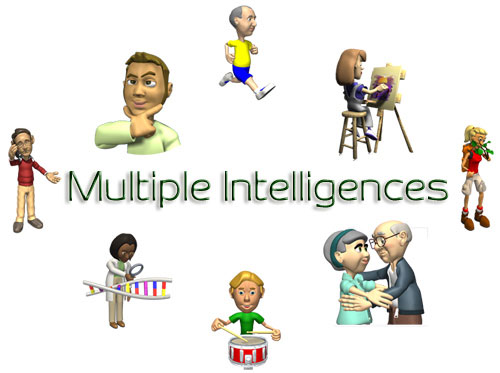 Musical-Rhythmic Intelligence
Musical-Rhythmic Intelligence
In Frames of Mind, Gardner (1993) says that the principal constituent elements of music are pitch, rhythm, and timbre (characteristic qualities of a tone) and those minute nuances are recognized by people with this intelligence. Those with Musical-Rhythmic intelligence learn musical pieces readily because of their sensitive ears and memories. They can tell the differences among performances of the same musical piece. At young ages, they can sing large segments of songs. They have an intuitive sensitivity to changes in music (louder, softer, faster, slower). Once people of this intelligence are trained in music as a system, they readily understand what occurs on a measure-by-measure basis and can analyze music in terms of its time signature. In other words, they appreciate a passage of music in terms of the number of beats per measure and the occurrence of particular rhythmic patterns against a metrical background. They have a special ability to reproduce music as well as to create new musical pieces.
- Collect Music, Records, Tapes, CDs, and mp3s: Due to their interest in and knowledge of music, they tend to develop collections of music (records, cassettes, CDs, books of music, hymnals).
- Sing and Play: These people usually sing and learn to play instruments, sometimes on their own and at a young age.
- Music Vocabulary: Those with this intelligence may know a great deal about musical notations, types of music, composers, etc.
- Creative: They are creative within the realm of music and/or rhythm.
- Remember Melodies: More than the average person, these people remember melodies, some of which may be from obscure compositions, not just those from popular songs or commercial jingles.
- Hum and Whistle: Produce sounds.
- Rhythmic: Responsive to tempo changes.
- Pitch Sensitivity: Hear subtle changes in tone.
- Drawn to Music: Emotionally touched by different musical passages.
- Respond to Sounds: Emotional reactions to different kinds of music.
- Emotional and Aesthetic: Because there is an emotional element to music and to musical compositions, these people tend to have strong emotional and aesthetic elements in their lives.
- Recognize Variations in Music: Differentiates among variations of the same theme.

